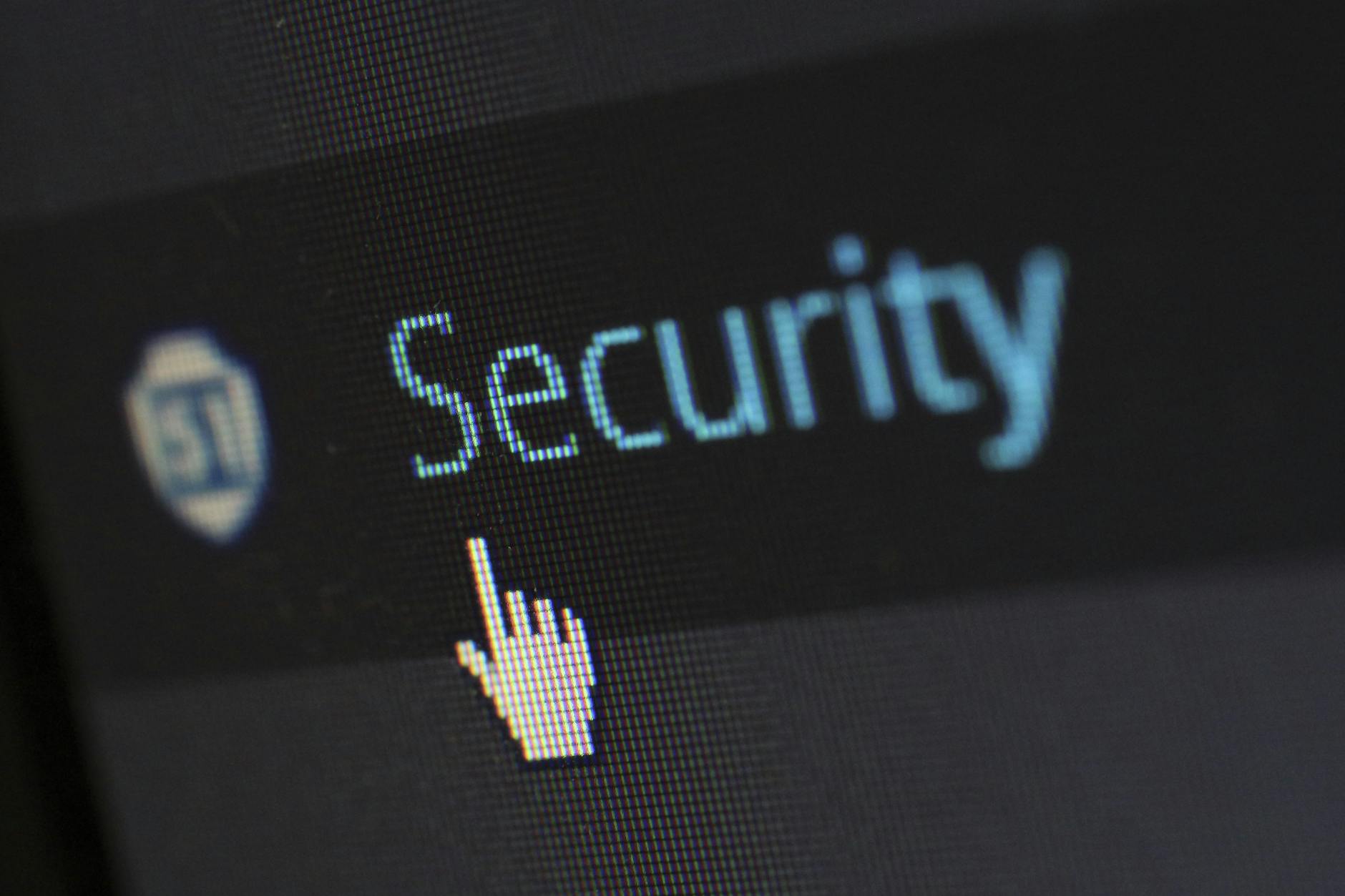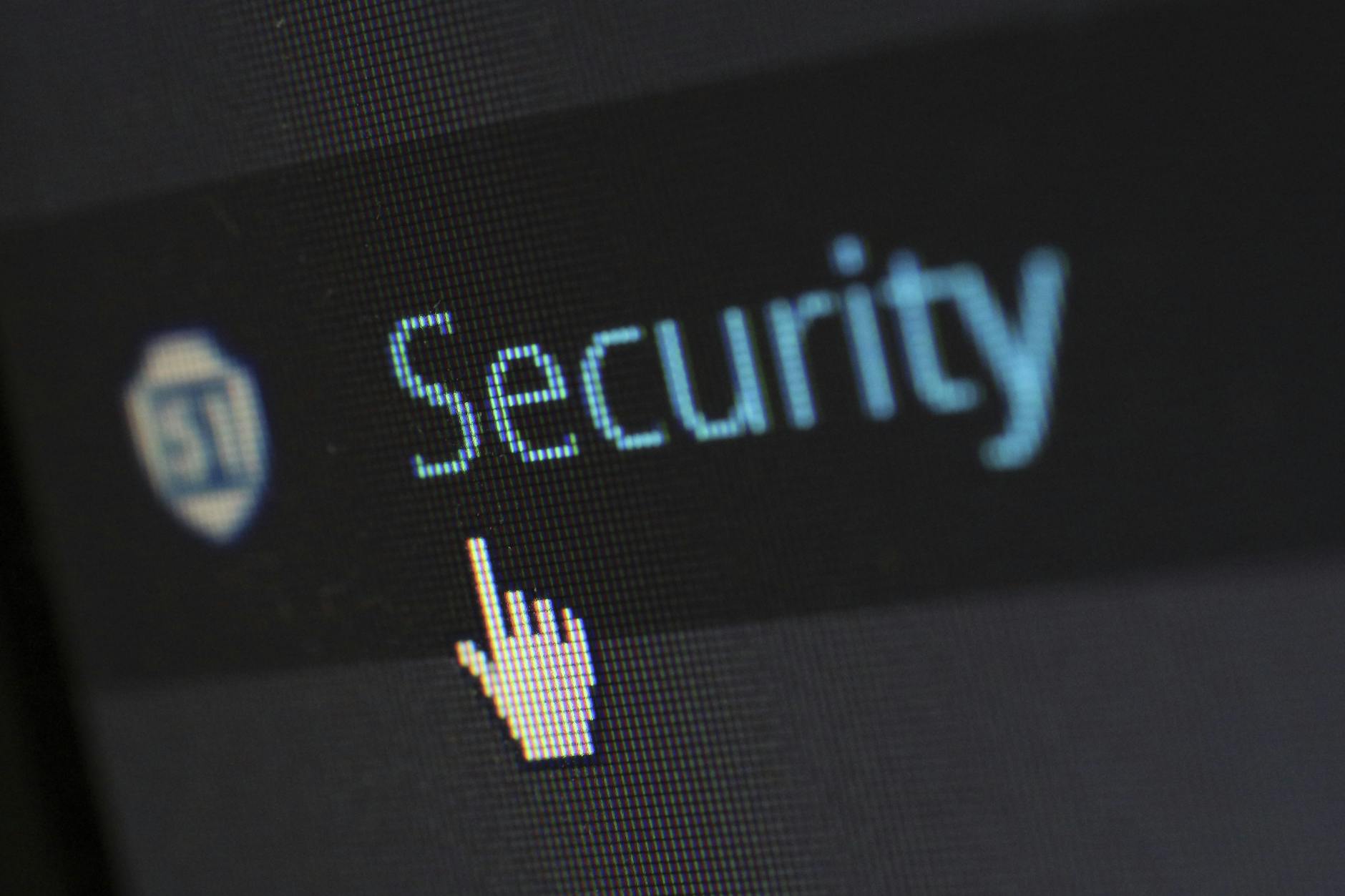
Image courtesy of Pixabay via <a target="_blank" rel="noopener noreferrer" href="https://www.pexels.com/photo/security-logo-60504/">Pexels</a>
Are you vulnerable online? Stay safe with these 10 crucial cybersecurity tips – protect your data and privacy now!
Table of Contents
- A Strong Foundation: Update Your Software Regularly
- Password Power: Create Strong and Unique Passwords
- Beware of Phishing: Be Wary of Suspicious Emails and Links
- Two-Factor Authentication: Add an Extra Layer of Security
- Secure Your Network: Utilize Encryption and Secure Wi-Fi
- Regular Backups: Safeguard Your Data
- Stay Informed: Educate Yourself on Cybersecurity Awareness
Welcome to the digital age where our lives are intertwined with technology more than ever before. While this brings countless conveniences, it also exposes us to potential threats and vulnerabilities. In a world where cyberattacks are on the rise, ensuring your online security has never been more essential. Here are some tips and best practices to help keep your personal information safe online.
A Strong Foundation: Update Your Software Regularly
One of the easiest ways to strengthen your cybersecurity is by keeping all your software up to date. Software updates often contain patches for security vulnerabilities that hackers could exploit. Whether it’s your operating system, antivirus software, or apps on your smartphone, make sure you regularly install the latest updates to build a strong defense against cyber threats.
Password Power: Create Strong and Unique Passwords
It may sound like a broken record, but the importance of strong passwords cannot be overstated. Avoid using obvious passwords like ‘123456’ or ‘password’ and instead opt for complex combinations of letters, numbers, and special characters. Furthermore, it’s crucial to use a unique password for each of your online accounts. In case one account is compromised, this will prevent hackers from accessing all your other accounts.
Beware of Phishing: Be Wary of Suspicious Emails and Links
Phishing attacks continue to be a common tactic used by cybercriminals to trick users into revealing sensitive information. Always scrutinize emails and messages that ask for login credentials, financial details, or other personal information. Be cautious of unfamiliar links and do not click on them unless you are certain they are legitimate. When in doubt, verify the source of the email or message with the company directly.
Two-Factor Authentication: Add an Extra Layer of Security
Enabling two-factor authentication (2FA) provides an additional layer of protection for your accounts. In addition to your password, 2FA requires a second form of verification, such as a unique code sent to your smartphone. Even if a hacker manages to obtain your password, they would still need access to your secondary verification method to log in. Many online services offer 2FA as an option, so be sure to enable it wherever possible.
Secure Your Network: Utilize Encryption and Secure Wi-Fi
Your home network serves as the gateway to your devices, making it crucial to secure it against unauthorized access. Utilize strong encryption protocols such as WPA3 for your Wi-Fi network and change the default network name (SSID) and password. Avoid connecting to public Wi-Fi networks for sensitive transactions and consider using a virtual private network (VPN) to encrypt your internet traffic and protect your privacy.
| Cybersecurity Tip | Description |
|---|---|
| Use Strong and Unique Passwords | Use a password manager to create unique passwords for each online account and ensure they are complex with a mix of letters, numbers, and special characters. |
| Enable Two-Factor Authentication | Add an extra layer of security by requiring a secondary form of verification, such as a text message or authentication app, to login to your accounts. |
| Update Software Regularly | Keep your operating system, software, and apps up to date to patch any security vulnerabilities that hackers could exploit. |
| Beware of Phishing Attempts | Avoid clicking on suspicious links or providing personal information in unsolicited emails or messages to prevent falling victim to phishing scams. |
| Secure Your Home Network | Set up a strong password for your Wi-Fi network and consider using a firewall to protect your internet-connected devices from external threats. |
Regular Backups: Safeguard Your Data
In the event of a security breach, having a recent backup of your data can be a lifesaver. Regularly back up important files and documents to an external hard drive or cloud storage service. This ensures that even if your device is compromised, you can retrieve your files and prevent permanent data loss. Remember to test your backups periodically to confirm they are functioning correctly.
Stay Informed: Educate Yourself on Cybersecurity Awareness
Education is key in the realm of cybersecurity. Stay informed about the latest threats, trends, and best practices for online security. Follow reputable cybersecurity blogs, attend webinars, and familiarize yourself with common security protocols. By increasing your cyber literacy, you can better protect yourself from potential cyber threats and make informed decisions when navigating the digital landscape.
By implementing these essential cybersecurity tips into your online habits, you can fortify your defense against malicious actors and safeguard your personal information. Remember, cybersecurity is a shared responsibility, and each individual user plays a vital role in maintaining the overall security of the digital ecosystem. Stay proactive, stay vigilant, and prioritize your online security in an interconnected world.
FAQs
How often should I update my software?
It’s recommended to update your software as soon as new updates are available. Regularly checking for updates and installing them promptly helps safeguard your devices against potential security vulnerabilities.
What is two-factor authentication (2FA) and how does it work?
Two-factor authentication adds an extra layer of security by requiring a secondary form of verification alongside your password, such as a unique code sent to your smartphone. This additional step helps prevent unauthorized access to your accounts, even if your password is compromised.
How can I spot a phishing email?
Phishing emails often contain suspicious links or requests for sensitive information, such as passwords or financial details. Be cautious of emails that create a sense of urgency or ask you to click on unfamiliar links. When in doubt, verify the sender’s identity before taking any action.
Why is backing up my data important?
Regularly backing up your data ensures that you have copies of important files and documents in case of a security breach or data loss. By maintaining up-to-date backups, you can restore your information and minimize the impact of any unforeseen events on your digital assets.




